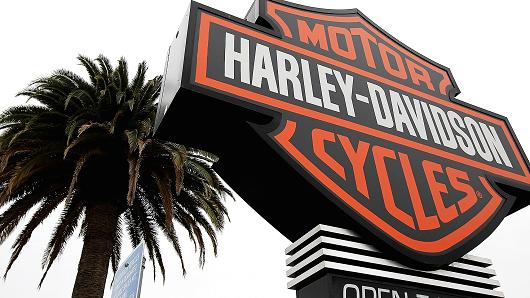LG Innotek secures $200 million IFC loan following revenue drop
LG Innotek Vietnam Hai Phong secured a $200 million IFC loan as revenue slows, aiming to expand camera module production while meeting sustainability targets.




Motorcycle maker Harley-Davidson Inc. said on Thursday it will build a plant in Thailand, a major Asian automotive hub, to serve the growing Southeast Asian market, a move criticized by a U.S. labor union.

The company did not give a figure for the planned investment in Thailand's Rayong province, southeast of Bangkok.
Katie Whitmore, Harley-Davidson public relations manager, said the company had its best results in Asia-Pacific in 2016, though she gave no numbers.
The Thailand facility "will allow us to be more responsive and competitive in the Asean region and China," Harley-Davidson public relations manager Katie Whitmore said.
"Increased access and affordability for our customers in the region is key to growth for the company in total," she said. "There is no intent to reduce H-D U.S. manufacturing due to this expansion."
The plant would let Milwaukee-based Harley-Davidson avoid Thailand's up to 60 percent tariff on imported motorcycles and help it get tax breaks when exporting to Thailand's neighbors, thanks to a trade arrangement among members of the Association of Southeast Asian Nation (ASEAN).
Harley opened a plant in India in 2011. It also assembles motorcycles at a plant in Brazil.
After the New York Times reported on Harley's planned Thai investment, United Steelworkers (USW) International President Leo W. Gerard on Tuesday said the decision was "a slap in the face to the American worker and to hundreds of thousands of Harley riders across the country."
USW represents members at Harley plants in two U.S. states and 850,000 workers in North America.
Gerard also said that production outside the U.S. "puts in jeopardy the success that has propelled Harley over the years."
Whitmore said motorcycles assembled in Thailand would have the same "authentic look, sound and feel" as those manufactured in the U.S.
Demand for Harley motorcycles in the U.S., the company's biggest market, continues to be slow as its loyal baby boomer demographic changes ages.
LG Innotek Vietnam Hai Phong secured a $200 million IFC loan as revenue slows, aiming to expand camera module production while meeting sustainability targets.
For Koen Soenens, Sales and Marketing Director at DEEP C, empathy is a compass that guides major deals, the way a leader builds a team, and the ambition to create a sustainable industrial zone that carries a Vietnamese identity.
Taseco Land has shifted its listing to HOSE and introduced a new upward-pointing arrow logo - a visual statement of its strategy to raise capital, expand its land bank, and strengthen its standing in Vietnam’s real estate sector
Located in the heart of Ho Chi Minh City, SAP Labs Vietnam is the second SAP Labs Network hub in Southeast Asia, following Singapore and is one of 20 countries that have SAP Labs globally.
Solar & Storage Live Vietnam event has been running since 2017 and the 2025 edition will be the biggest yet.
A new partnership between EY and the Vietnam-Singapore Board Forum (VSBF) is set to strengthen ESG capabilities for Vietnamese businesses, helping shape more sustainable business models.